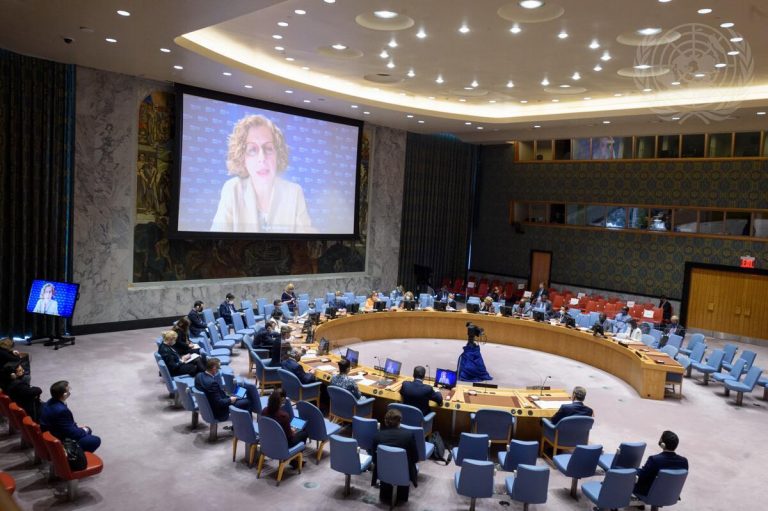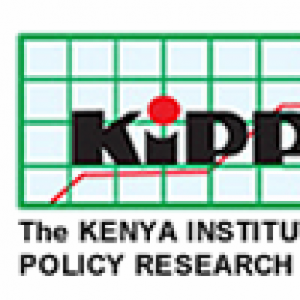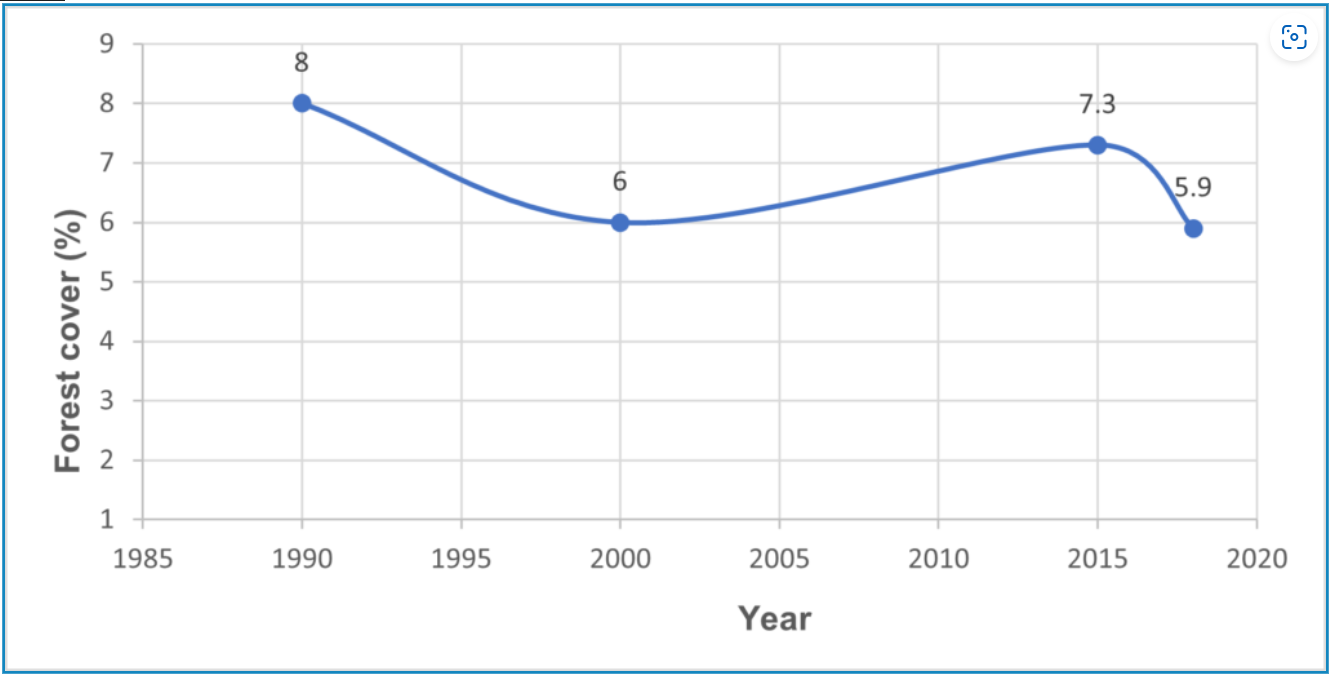Kenya commenced its two-year term (2021-2022) non-permanent seat at the United Nations Security Council (UNSC) in January 2021. Kenya campaigned for the seat on a 10-point agenda, namely: building bridges; regional peace and security; peace support operations; countering terrorism and prevention of violent extremism; humanitarian action; justice, human rights and democracy; women, peace and security; youth and development; environment and climate change agenda; and Sustainable Development Goals agenda. Concurrently, Kenya is a member of the African Union Peace and Security Council for a three-year term ending on 31st March 2022.
The Security Council is one of the principal organs of the United Nations. Other UN principal organs include the General Assembly, Economic and Social Council, International Court of Justice, Trusteeship Council and Secretariat (Article 7 of the UN Charter). The UN Charter is the founding document of the UN. It codifies major principles of international relations, UN organs and their respective powers and functions. The Charter is recognized as an international treaty and an instrument of international law. The UNSC is composed of 15 members, namely: five permanent members (China, France, Russia, United Kingdom and United States) and ten non-permanent members, elected for a term of two years (Article 23). The current non-permanent members (NPM) for 2021 are Estonia, India, Ireland, Kenya, Mexico, Niger, Norway, Saint Vincent and the Grenadines, Tunisia and Vietnam.
The functions and powers of the United Nations Security Council include: maintenance of international peace and security in accordance with the principles and purposes of the UN Charter (Article 24); investigation of any dispute or situation that might lead to international friction (Article 34); recommendation of methods of adjusting such disputes or the terms of settlement (Article 36); determination of the existence of a threat to peace or acts of aggression and recommend what action should be taken; calling on UN members to apply sanctions and other measures to prevent or to stop aggression (Article 41); taking military action against an aggressor (Articles 42-46); to recommend the admission of new members to the UN (Article 4); recommendation to the General Assembly the appointment of the Secretary-General (Article 97); with the General Assembly, elect the judges of the International Court of Justice (Article 4 of the Statute of the ICJ).
The Permanent members (P5) of the UNSC have enormous powers due to the veto power (Article 27(3)) that enables any of them to prevent the adoption of substantive draft resolution. The P5 also have the advantage of institutional memory due to the permanency at the UNSC. Further, the P5 have inherent clout that gives them power in setting agenda especially when they join forces on an issue at the Security Council. The United Nations Charter can only be amended with the vote of 2/3 of members of United Nations General Assembly and all the UNSC permanent members. The P5 have the most powerful military forces, accounting for over 60 per cent of global military expenditures. The P5 are the only recognized nuclear states under the Treaty on the Non-Proliferation of Nuclear Weapons. In other words, the P5 have predominant role in world politics.
During its two-year tenure at the UNSC, Kenya aims to be a building bridge and a consensus builder between the P5 and non-permanent members (also known as the E10) of the Security Council; the Peace Building Commission; and the United Nations General Assembly. As an anchor state and a guarantor to numerous peace processes within Eastern and Central African sub-regions, Kenya is expected to share its wealth of experience in mediation, peace building and post-conflict reconstruction with the other members of the UNSC. Kenya has played a remarkable role in search for peace in regional countries, including Sudan, South Sudan, Somalia, Ethiopia, Uganda, Democratic Republic of Congo, Burundi, Central African Republic and Mozambique. Further, Kenya has been instrumental in multilateral peace support operations contributing over 55,000 troops and other personnel to various peacekeeping missions in around 40 countries. The country also contributes to the training of peacekeepers from different countries at the International Peace Support Training Centre in Nairobi.
As a non-permanent member of the UNSC, Kenya is expected to push for technical assistance, capacity building and enhanced coordination to strengthen global counter terrorism capacities as the country has been active in the fight against global terrorism and radicalism in East Africa and the Horn of Africa. Kenya has had a long history of engagement in humanitarian assistance to refugees, asylum seekers, victims of natural disasters and pandemics in Africa. In the spirit of solidarity, Kenya has contributed healthcare professionals to other African countries. For instance, Kenya contributed towards the fight against Ebola in West Africa by sending a significant number of health workers to Sierra Leone and Liberia in 2015. The Government also made material contribution to the affected countries. In May 2020, Kenya sent 50 health professionals to Seychelles to assist local health care providers to prepare possible cluster cases and community transmissions of COVID-19. To consolidate and structure the country’s humanitarian diplomacy, a consultative dialogue was organized in February 2017 to explore the development of a strategic humanitarian assistance framework.
Through strong belief in sustainable development, multilateralism and rule-based international system, Kenya hopes to contribute considerably to other thematic areas, including Sustainable Development Goals agenda; environment and climate change; justice, human rights and democracy; youth empowerment; and women, peace and security. The 10-point agenda has clearly laid out priorities, focus areas and perspectives on contemporary peace and security in the world. Kenya is determined to champion Africa’s peace and security agenda at the UNSC and adherence to the principles and dictates of the United Nations Charter in building a peaceful, stable and prosperous world order.
Previously, Kenya occupied the non-permanent seat in 1973-1974 and 1997-1998. During Kenya’s first tenure at the Security Council, 20 and 22 resolutions were passed in 1973 and 1974, respectively. Key global peace and security issues dealt with in 1973 included the situation in the Middle East; Southern Africa especially minority rule in Southern Rhodesia (Zimbabwe) and Namibia; the Panama Canal and Latin America; the situation in Cyprus; and admission of new members to the United Nations, namely West Germany, East Germany and The Bahamas. Kenya held the UNSC Presidency (Ambassador Joseph Odero-Jowi) in February 1973. It was during this time of Kenya’s presidency that the question of South Africa’s continued occupation of Namibia, the perpetuation of the Bantustan policy and exploitation of mineral resources in South Africa became a major subject within the Security Council. Similarly, Kenya sponsored the Security Council resolution 326 (1973) when a team was sent to Southern Africa to investigate acts of provocations and aggression against Zambia by the minority regime in Southern Rhodesia. The non-permanent members of the UNSC in 1973 included Australia, Austria, Guinea, India, Indonesia, Kenya, Panama, Peru, Sudan and Yugoslavia.
In 1974, the Security Council resolutions largely dealt with security and peace issues in Cyprus, Middle East; admission of new members namely Grenada and Guinea-Bissau into the United Nations; and the inclusion of Chinese as a working language in the Security Council. Kenya held UNSC presidency (Ambassador Charles Gatere Maina) in May 1974. In the course of 1974, Kenya led Cameroon and Mauritania in sponsoring a motion to expel South Africa from the United Nations due to its apartheid policies and racial discrimination. Though three permanent members (France, United Kingdom and United States) vetoed the motion, Kenya and majority of UNSC sent a strong message that the international community could not be indifferent to injustices against the majority in South Africa. The E10 in 1974 included Australia, Austria, Byelorussian Soviet Socialist Republic (now Belarus), Costa Rica, Indonesia, Iraq, Kenya, Mauritania, Peru and United Republic of Cameroon.
Kenya’s second tenure at the Security Council in 1997–1998 was a different international environment following the end of Cold War and establishment of majority rule in Zimbabwe (1980), Namibia (1990) and South Africa (1994). However, African countries including Liberia, Sierra Leone, Democratic Republic of Congo, Angola, Sudan and Somalia faced armed conflicts. The Security Council passed 54 and 73 resolutions in 1997 and 1998, respectively. Kenya held UNSC presidency in February 1997 and May 1998 under Ambassador Njuguna M. Mahugu. In 1997, African countries in conflicts were a priority for the Security Council. For instance, resolution 1097 (1997) endorsed five-point plan for eastern Democratic Republic of Congo, namely: immediate cessation of hostilities; withdrawal of all external forces including mercenaries; reaffirmation of respect for the national sovereignty and the territorial integrity; protection and security for all refugees and displaced persons; and rapid and peaceful settlement of the crisis through dialogue, electoral process and convening an international conference on peace, security and development in the Great Lakes region. Ambassador Mahugu was also instrumental in urging Angola’s President Eduardo dos Santos and the armed opposition leader Jonas Savimbi to respect the Lusaka Protocol and the relevant Security Council resolutions. Similarly, through presidential statement read by Ambassador Mahugu, the Security Council demanded that the Government of Unity and National Reconciliation and Savimbi’s UNITA to guarantee unconditionally the safety and freedom of movement of all UN and other international personnel in Angola. Other regions of concern in 1997 included the former Yugoslavia, Latin America, Central Asia and the Middle East. The non-permanent members of the Security Council in 1997 were Chile, Costa Rica, Egypt, Guinea-Bissau, Japan, Kenya, Poland, Portugal, Republic of Korea and Sweden.
In 1998, the Security Council passed 73 resolutions as the international community was dealing with numerous threats to international peace and security across the globe especially civil conflicts, inter-state conflicts, Lockerbie case, formation of the International Criminal Tribunal for former Yugoslavia and international terrorism. In Africa, several resolutions addressed peace and conflict issues in Angola, Central African Republic, Sierra Leone, Western Sahara and Rwanda. During Kenya’s presidency in May 1998, the following resolutions were passed by the Security Council: 1166 (1998) on the International Tribunal for the former Yugoslavia, 1167 (1998) Tajikistan, 1168 (1998) Bosnia Herzegovina, 1169 (1998) Middle East and 1170 (1998) Africa. On 13th August of 1998, resolution 1189 (1998) on international terrorism was passed. This followed simultaneous terrorist attacks in Nairobi and Dar es Salaam on 7th August 1998. The resolution called upon all states and international institutions to cooperate with and provide support and assistance to the investigations in Kenya, Tanzania and the United States to apprehend the perpetrators of the heinous attacks. Resolution 1189 (1998) was endorsed unanimously by all non-permanent members (Bahrain, Brazil, Costa Rica, Gabon, Gambia, Japan, Kenya, Portugal, Slovenia and Sweden) and the five permanent members of the UN Security Council.
To achieve their priority objectives and perform their role in the maintenance of international peace and security, non-permanent members use various institutions and frameworks, including UNSC presidency, subsidiary bodies, penholder system, informal meetings, diplomatic relations and networks. Article 30 of the UN Charter stipulates that the UNSC “shall adopt its own rules of procedure.” In 1946, the Security Council adopted its Provisional Rules of Procedure (S/96). According to the Procedure, the UNSC Presidency is held for the calendar month. The President is responsible for the conduct of meetings of the UNSC and is authorized to represent the UNSC in relations with other organs of the UN and with member states. The President calls meetings when necessary, approves provisional agenda and signs verbatim record of Security Council meetings, among others. When Kenya assumes the rotational presidency at the UNSC in October 2021, it could use the opportunity to push for the global peace and security interests and realization of the country’s selected priority objectives stipulated in the ten-point agenda.
Chairing the Security Council subsidiary bodies is another opportunity for non-permanent members to provide leadership in the Security Council and to contribute tangibly to Security Council’s decisions. Normally, the chairing of the Security Council subsidiary bodies is reserved for non-permanent members and rotates on an annual basis. With more than 20 active subsidiary bodies, the E10 can chair numerous subsidiary bodies simultaneously. Further, penholder system has grown since early 2000s into a practice in which one or several members (mostly P5) lead negotiations and draft texts on agenda items. The calls for a broader sharing of responsibility for ‘holding the pen’ with NPMs has led to commitments by the P5 to include the E10. When they gradually get integrated into penholder system, the NPMs could use the forum to influence negotiations at the Security Council.
Informal meetings have become an important forum for the Security Council to consider some issues of significance. Such fora include informal interactive dialogues where the Security Council meets and consults other UN bodies and civil society organizations. Informal interactive dialogues may be initiated by any Security Council member or group of members. Such meetings are increasingly becoming useful for hearing a wider range of perspectives on a given topic as the Security Council gets opportunity to engage in more interactively and transparently with the broader United Nations community. The informal meetings are an opportunity for non-permanent members such as Kenya to advance their priority objective issues.
Having been a non-permanent member of the Security Council, Kenya can draw lessons from its tenure in 1973-1974 and 1997-1998 not only for playing a role in achieving the objectives of the UNSC but also for the realization of the country’s set priority objectives. The membership at the Security Council will provide Kenya with the responsibility to contribute to the maintenance of international peace and security and an opportunity for global influence. By virtue of being at the table (UNSC), Kenya has a voice on the pressing issues of the day. The seat offers an opportune platform to provide leadership and participation on global issues such as climate change, international development, gender issues, SDGs and human rights. Kenya could also advance the pan-Africanist agenda of global peace, solidarity and multilateralism in championing Africa’s cause at the UN Security Council especially in finding lasting solutions to instability and conflicts in the Sahel region, Horn of Africa (Somalia, South Sudan, Ethiopia-Sudan border dispute, Tigray conflict), Eastern Democratic Republic of Congo and northern Mozambique. The non-permanent seat could also be critical for Kenya in advancing UNSC reforms in accordance with African Union Ezulwini Consensus that aims at expanding Africa’s position on security and peace at the global level.
Author: Paul Odhiambo, Policy Analyst, Trade and Foreign Policy Department






